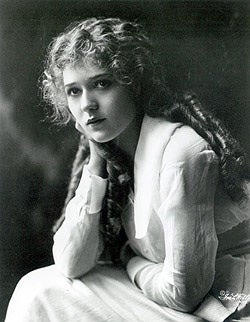Download an informal listing of over 500 holdings in the Mary Pickford Collection at UCLA in PDF format.
Note that not all titles are available for viewing. Additional relevant titles not listed here may be cataloged in the Archive's general collection.
From the Mary Pickford Foundation:
Mary Pickford was a multifaceted pioneer of early cinema. She was a talented performer, a creative producer and a savvy businesswoman who helped shape the film industry as we know it today.
Pickford’s first film director was the legendary D.W. Griffith and she made over 100 short films with him at the Biograph Company between 1909 and 1912. Though actors were not yet credited by name, Pickford – referred to by audiences as "the girl with the curls" and "the Biograph girl" – rose to fame at a time when there was no path to follow.
Between 1916 and 1919, Mary Pickford starred in and produced such classics as Stella Maris and Pollyanna, often collaborating with director Marshall Neilan, cinematographer Charles Rosher and screenwriter Frances Marion. From 1912 to 1919, Pickford jumped between a variety of studios, increasing her paychecks astronomically each time until she risked it all by joining with Douglas Fairbanks, D.W. Griffith and Charlie Chaplin to form United Artists, a venture that allowed the superstars to control their own product.

After establishing herself in the silent era as one of the most successful and popular actresses of all time, Pickford won an Academy Award in 1929 for her first sound feature, Coquette. After retiring from acting in 1933, Pickford went on to work behind the scenes as a producer and a board member of United Artists. She was a founder of the Motion Picture Relief Fund, the Academy of Motion Picture Arts and Sciences and the Society of Independent Motion Picture Producers. In 1976, Pickford received an honorary Oscar for her contribution to motion pictures.
For more information on Mary Pickford, please visit the Mary Pickford Foundation's website.
To arrange onsite research viewing access, please contact the Archive Research and Study Center (ARSC).







